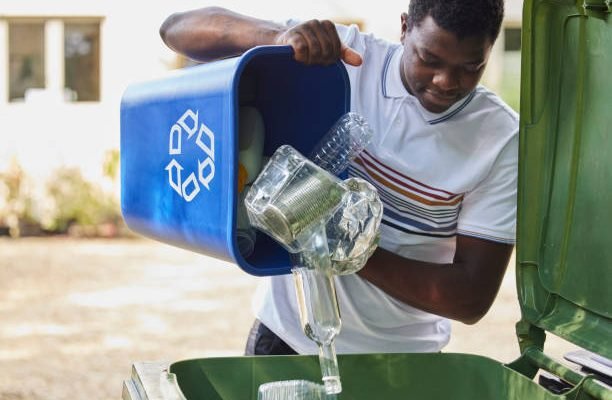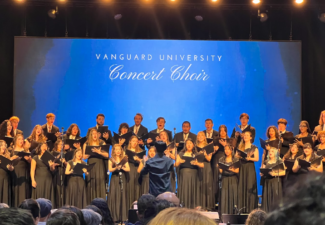With the rising climate crisis, people are looking for ways to live sustainably more than ever, including recycling. Waste and single use plastics create greenhouse gas emissions that contribute to climate change, but how can individuals, especially college students, make an impact?
Despite being a normal practice in homes and businesses all across California, residents in the dorms of Vanguard University are faced with an environmental dilemma: inaccessible recycling. As students may know, there are no recycling options in Vanguard’s dorms.
“I like recycling, even back at home,” Senior Andrea Velaquez states. “At Vanguard Centre, there’s no recycling either. There’s one large trash can that all the residents throw their trash into, but there isn’t a separate section for people to throw their recyclable waste.”
Currently, Vanguard University offers compost bins for food, plants, and other organic matter to be sustainably disposed, but plastics, papers, and glass have no place to be recycled. Placing visible recycling bins in residence halls and around campus fosters not only an eco-friendly environment, but a sense of stewardship among residents.
“If each person does it, you could save the world,” Velasquez states.
Being exposed to recycling on a daily basis encourages students to be mindful of their waste and consumption.
Vanguard University’s Assistant Director of Housing, Megan Sisk, states that despite not having recycling bins on campus, “Costa Mesa Sanitary Department recycles up to 60% of all mixed waste.”
Though the city has efforts to recover recyclable materials, Vanguard University has the ability to impact the recycling chain and lessen the burden on sanitary departments. By simply keeping the recyclables in a different bin from general waste, it reduces the risk of contamination and unrecovered material.
Presorting waste is Orange County Waste & Recycling Deputy Director Jorge Hernandez’s suggestion for the university.
On campus, mixed waste, meaning recyclables and general waste, is deposited into singular containers. The waste is then transported by a waste processing company, CR&R, to a material recovery facility (MRF). There, the trash is sorted into recyclables and landfill by a conveyor belt system. Recovered recyclables are sent to recycling plants while the remaining waste goes to the landfill. Facilities like CR&R’s MRF must process hundreds of tons on a daily basis in order to keep up with Orange County’s waste needs.
In the past year, over five million tons of trash were buried in Orange County landfills, according to Hernandez. “On a daily basis we can get anywhere from 7,000 to 7,500 tons,” he states.
The strain of handling such large quantities of waste can overwhelm MRFs, slowing the recycling process.
In order to maximize efficiency, students and households can separate recyclables and other waste into separate containers. Mixed waste containers allow for contamination of recyclables and makes it more difficult for MRFs to sort through waste.
“When our residents take the initiative to presort the material, it makes it a lot easier to handle,” Hernandez states.
By making the small effort to sort recyclables and general waste, students and families have the ability to positively impact the recycling process and the environment.
As stewards of the earth, there is a personal responsibility to take care of the environment in all possible ways. Students and staff should be pushed to think critically about how they can help the planet. Recycling options on campus is the first step to integrating environmental consciousness into the Vanguard community’s daily lives.
This article was written in Spring 2022.

 The Liturgical Calendar: Should Christians Observe It?
The Liturgical Calendar: Should Christians Observe It? Embracing Authenticity in the Pursuit of Success: A Reflection on Journalism, Education, and Meaningful Academia
Embracing Authenticity in the Pursuit of Success: A Reflection on Journalism, Education, and Meaningful Academia Spring Concert: Music From Around the World
Spring Concert: Music From Around the World
Leave a Reply